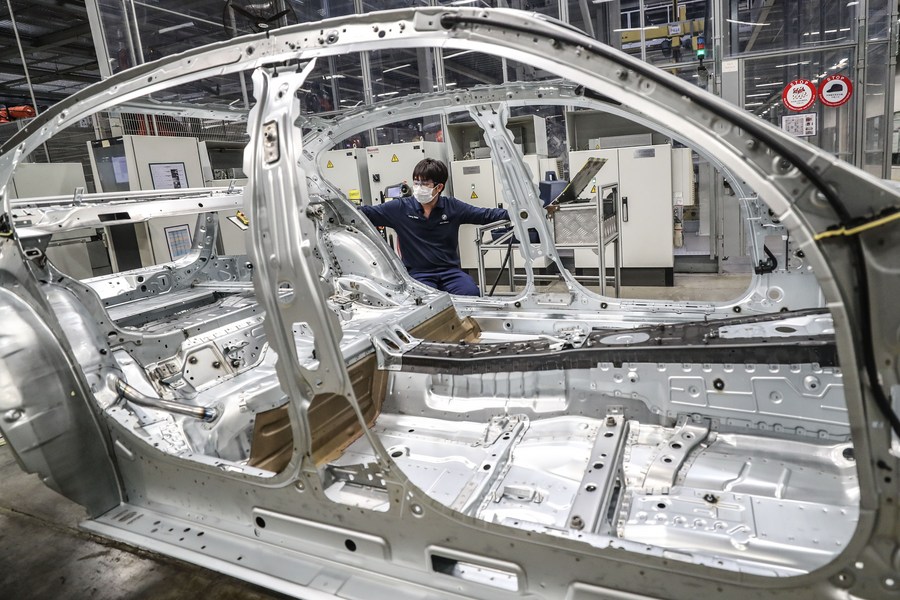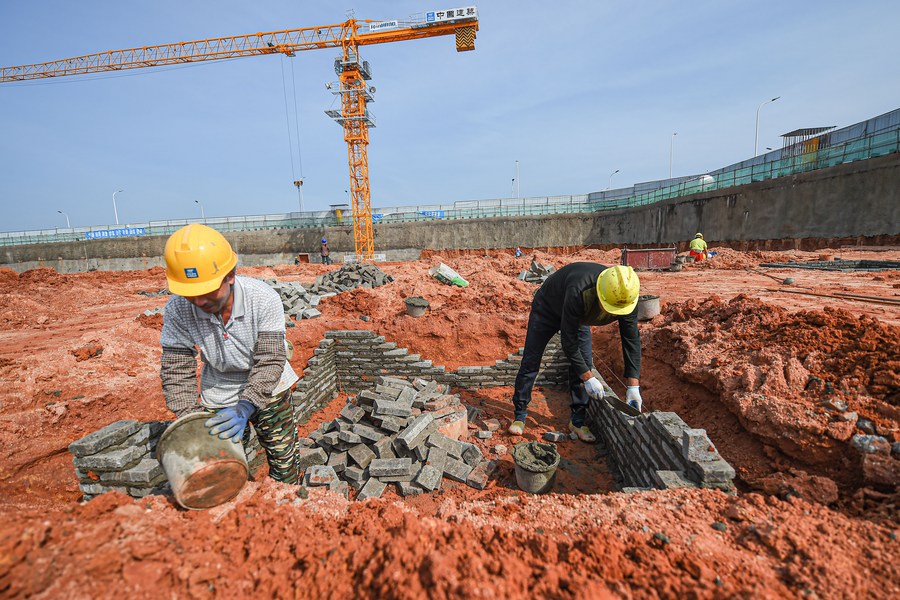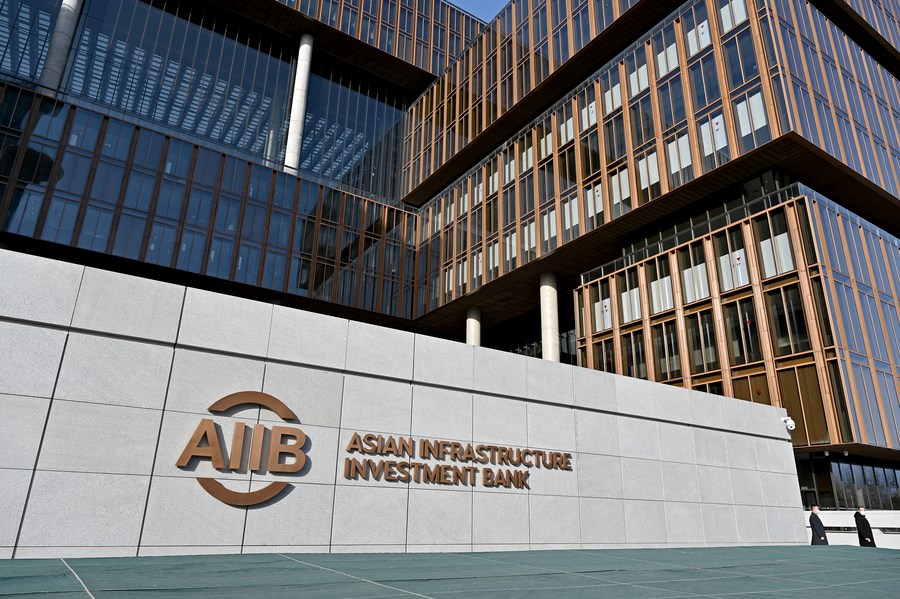BEIJING, April 18 (Xinhua) -- In an increasingly complex world where economic globalization faces headwinds with a threat looming over multilateralism and free trade, where is humanity headed and what is the future of Asia?
Chinese President Xi Jinping answered these "fundamental questions of our time" at the annual conference of Boao Forum for Asia (BFA) in 2018, vowing to open China further and calling for building a community with a shared future for humanity.
The past three years have seen China's persistent efforts in translating the opening-up initiatives Xi put forward into reality, sharing the opportunities of China's development with the rest of the world.

A NEW PHASE OF OPENING-UP
Xi announced a batch of opening-up measures at the annual conference of BFA in 2018, with the expectation that the country's opening-up efforts will benefit all enterprises and people in China and around the world as soon as possible.
The measures included significantly broadening market access, creating a more attractive investment environment, strengthening the protection of intellectual property rights and taking the initiative to expand imports, among others.
"Opening-up is a strategic decision made by China based on its need for development as well as a concrete action taken by China to move economic globalization forward in a way that benefits people across the world," Xi said.
Accordingly, China put into effect the landmark foreign investment law on Jan. 1, 2020. The law grants foreign-invested enterprises access to government procurement markets through fair competition and bans using administrative licensing and penalties to force foreign investors to transfer technology.
The negative list for overseas investors was shortened time and again to further ease market access.
More specifically, the country scrapped foreign ownership restrictions on the automotive industry in 2018, with overseas car-making giants such as BMW and Tesla responding quickly by expanding their presence in the Chinese market.

While accelerating the development of 21 pilot free trade zones nationwide, China released a master plan of building Hainan, the southernmost province where the BFA is held, into a globally influential and high-level free trade port by the middle of the century.
This month, the country unveiled more policies to further liberalize and facilitate trade in the Hainan free trade port, allowing certain regions to relax their control of import and export qualifications for and quantities of commodities such as crude oil, refined oil and sugar, and cancel their licensing systems for imports such as mechanical and electrical products.
Figures speak for themselves. As global capital flows remain volatile due to uncertainties triggered by COVID-19, foreign direct investment into the Chinese mainland, in actual use, expanded 6.2 percent year on year to a record high of 999.98 billion yuan (about 153.16 billion U.S. dollars) last year.
The latest data also showed that the country's total imports and exports of goods surged 29.2 percent year on year to 8.47 trillion yuan in the first quarter of this year.

A SHARED FUTURE
BFA was founded in 2001 when Asian countries sought economic integration in the aftermath of the 1998 financial crisis. Two decades after its inception, the world again stands at a critical moment in history.
Facing a world with growing anti-globalization sentiment, populism, unilateralism and protectionism, China has come up with its own vision of global governance.
Xi called on BFA participants in 2015 and 2018 to build "a community with a shared future for humanity," pursuing an open, inclusive, clean and beautiful world that enjoys lasting peace, universal security and common prosperity.
China, together with many countries, is working to put this concept into practice.
A total of 138 countries and 31 international organizations have signed cooperation agreements with China on the Belt and Road Initiative (BRI), which aims to achieve policy, infrastructure, trade, financial and people-to-people connectivity along and beyond the ancient Silk Road trade routes.
"The initiative, meeting the development needs of China, countries along the routes and the region at large, will serve the common interests of relevant parties and answer the call of our time for regional and global cooperation," Xi said when addressing the annual conference of BFA in 2015.

Meanwhile, the China-proposed Asian Infrastructure Investment Bank (AIIB), which has grown to 103 approved members worldwide, has been dedicated to promoting infrastructure construction, regional connectivity and mutual development in Asia.
By January, the bank had provided over 22 billion U.S. dollars in infrastructure investment for its members and approved 108 projects.
Between April 2020 and Oct. 16, 2021, the bank's crisis recovery facility will offer up to 13 billion U.S. dollars worth of financing to both public and private sector entities in AIIB members facing or at risk of adverse pandemic-induced impacts.
Xi said the BRI and the AIIB are both open initiatives. China welcomes all countries along the routes and in Asia, as well as friends and partners around the world, to actively participate in these endeavors.
In the meantime, China has also played an active role in global environmental governance and is willing to work with others to build a green home.

Xi has on many occasions called for joint efforts from the international community to tackle climate change and other environmental challenges and protect the blue planet.
He announced at the general debate of the 75th session of the United Nations General Assembly that China aims to have CO2 emissions peak before 2030 and achieve carbon neutrality before 2060.
"To scale up efforts to address climate change and promote sustainable development bears on the future of humanity," Xi said in his special address at the World Economic Forum Virtual Event of the Davos Agenda this January.
Over the years, the BFA has witnessed how China, as the host country, firmly supported the development of the forum and committed to advocating dialogue and cooperation among Asian countries.
The forum, now celebrating its 20th anniversary, has not only played a unique role in pooling consensus and putting forward valuable "Boao proposals," but also engaged countries outside of Asia in addressing global issues and promoting world development and prosperity.
This year's annual conference, welcoming more than 2,600 attendees from more than 60 countries and regions offline, is themed "A World in Change: Join Hands to Strengthen Global Governance and Advance Belt and Road Cooperation."









